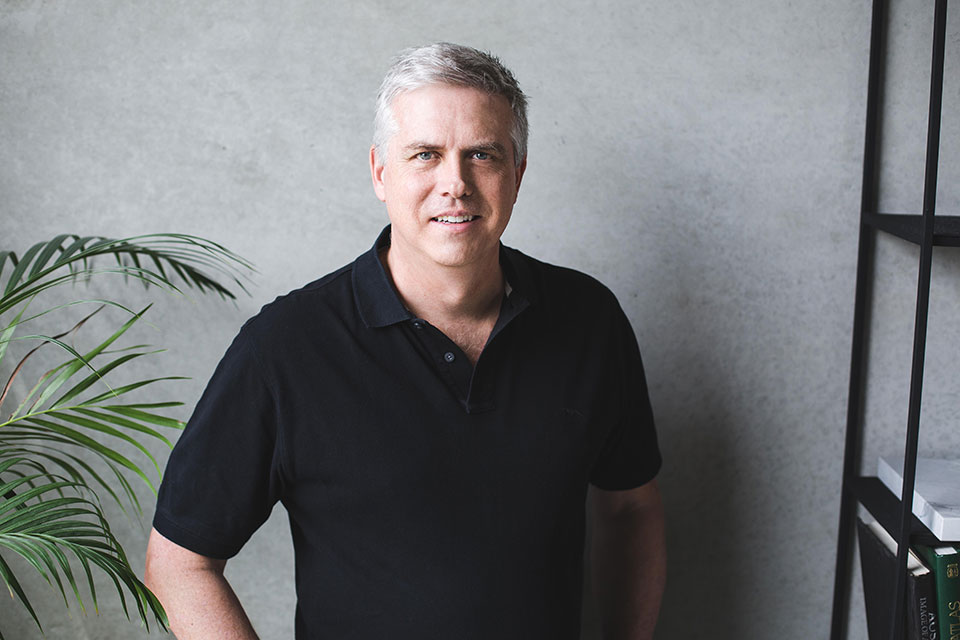Can our negative emotions provide an inner superpower?

What I learned about taming negative emotions after a cycling accident changed my life.
When life is suddenly disrupted, or we feel threatened, hurt, or pressured it triggers negative emotions to kick in – like despair, self-doubt, and fear. This can cause malaise, lamentation and lethargy. Imagine if we could more consistently adapt these negative emotions to provide positive impetus. I believe we all do this often, mostly sub-consciously. I certainly did.
In March 2019 I failed to make a corner whilst road cycling. My controlled crash decision flung me over the handlebars into a storm water drain. In hospital, I heard the words “spinal cord injury”, then underwent emergency stabilisation of my spine – two parallel 23 centimetre rods to protect my crush fractured vertebrae.
In a split second my life felt shattered. I experienced many negative emotions on that first morning and as I tackled a difficult recovery. I live with the consequences every day.
Our deepest emotions are powerful
Picture the oft-used iceberg graphic, where most of the substance is unseen. It is applied to our emotions for good reason. Our most powerful emotions, connected to our identity, are below the surface. They provide our strongest drivers when we need to engage sustained motivation.
Because these thoughts and emotion are integrated with our identity, they have tremendous ability to grind away. To gnaw at us if negative, or to be our inner generator powering us forward, if we can apply them positively.
My experience – facing the inability to walk and a very different life – is that despairing and terrifying thoughts can be employed productively. If you are facing a significant transformation or sustained personal growth, it is extremely valuable to make repeat efforts, to keep trying time and time again. To chip away. To reassess and listen, then connect where you are to where you want to be using these deep personal drivers. This is how we engage our resolve to achieve difficult goals.
Emotions are effective
I applied several strategies to keep me focussed on the next moment rather than dwelling on what had happened to me, or how bad the current moments felt.
My default strategy was simply to act. I would listen carefully to the specialists and then consistently do the simplest things I needed to do. To move forward and to avoid any setbacks. When I felt overwhelmed I reverted to these small things. Again and again, driven by these deep emotions. Striving to sustain my identity. Any progress was good progress.
I also embraced assistance. Gentle interventions from others can be crucial to help us appreciate the balance between our positive and negative thoughts. I am grateful that my wife and physios regularly helped me turn fear, guilt and despair into positive emotions during my recovery.
My most powerful strategy was attaching reframed mantras to my negative thoughts. I was frightened and desperate about where I was, so I employed my emotional identity to make the idea of not improving more frightening and unpalatable. “I don’t want to be a burden to my family, so I must pursue improvement with all my might”.
Reframing provides sustained power
When life has been disrupted, we are suddenly immersed in thoughts that help us, and thoughts that hinder us. We can’t deny these thoughts as they are deep emotions connected to our sense of self. They are incredibly powerful.
My experience is that when a negative emotion is constraining or deflating us, the most effective, sustainable action is to reframe that thought into a positive action. By adapting these negative thoughts, using mantras, I harness my inner superpower.
Reframing encourages me to sustain my recovery effort today, three years after my accident. My most consistent mantra happens when I am with my family. I can only walk about half the speed I used to, so invariably they will leave me steps, then metres, then tens of metres behind. It triggers the automatic negative thought “I hate not keeping up”. But I have coached myself to build that immediately into the positive: “how lucky am I to be walking with the chance to improve”.
7 tips for harnessing negative emotions
- Know that you are not alone – people achieve exceptional things from imperfect positions every day.
- Embrace support – interventions change our awareness of our mindset and provide a platform to change our perspectives.
- Mimic success – think about people that thrived in difficulty. Imagine the attitude they might have applied to manage their negative emotions.
- Visualize progress – shift your mindset from the present to where you might get to if you can just achieve this next step.
- Take action – even the smallest steps can shift our perspectives on our circumstances.
- Use mantras – permanently associate a positive intent to the negative emotion.
- Celebrate action as well results – positive feedback reinvigorates effort and belief. Accept praise and give yourself credit for all helpful acts. Start by celebrating setting a mantra!
Written by Mark Berridge.
Have you read?
Global Consultancy Assuras Shaking Up The Industry with CEO Tyler King’s Unique Approach To Complex Problem Solving.
Forget Fiduciary Trust – CEOs Have a Bigger Job by Bob Priest-Heck.
3 Reasons Why a Systematic Approach Gives Traders an Edge by Andrea Unger.
Vulnerability and the modern leader by Kerry Swan.
Add CEOWORLD magazine to your Google News feed.
Follow CEOWORLD magazine headlines on: Google News, LinkedIn, Twitter, and Facebook.
This report/news/ranking/statistics has been prepared only for general guidance on matters of interest and does not constitute professional advice. You should not act upon the information contained in this publication without obtaining specific professional advice. No representation or warranty (express or implied) is given as to the accuracy or completeness of the information contained in this publication, and, to the extent permitted by law, CEOWORLD magazine does not accept or assume any liability, responsibility or duty of care for any consequences of you or anyone else acting, or refraining to act, in reliance on the information contained in this publication or for any decision based on it.
Copyright 2024 The CEOWORLD magazine. All rights reserved. This material (and any extract from it) must not be copied, redistributed or placed on any website, without CEOWORLD magazine' prior written consent. For media queries, please contact: info@ceoworld.biz
SUBSCRIBE NEWSLETTER








